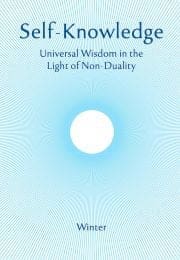Finding Joy
Ultimate joy depends on self-realisation, but the Self to be realised is not a phase of the body or mind, but rather the central pivot which makes all experience possible. At this level of centrality and depth, thought is transcended, and what subsists is the illumined sameness, referred to in the Gospel of St John as ‘the Light which lighteth everyone’. Thus self-realisation transcends finitude and individual selfhood. Being free from all boundaries, its joy is limitless and unconditional.
Yet the human mind, when it first learns about this higher possibility, may recoil and retreat into more familiar ways of doing or being. As life progresses, the mind forms frameworks and develops convictions which resist all challenge. This too is a kind of self-development, but it is narrow and unprogressive, because it feels no need for change or progress.
On the other hand, the presence of that constant light at the core of our being will not allow us to stagnate or rigidify. Teachings that may be at first resisted will go on stirring below the surface of fixed ideas, and our primal need for a joy that is durable and faultless will eventually permit the new life and light to attract our heart and guide our life.
When this happens, the methods and practices which foster inner quietude and depth will start to make a real appeal and awaken (or revive) a new tendency—that is, the tendency to turn within and seek joy through a calm, inward focusing, rather than in outer excitement and activity. This is the path to true self-realisation, through the mind itself until one awakens one’s identity with the light which animates the mind, and realises the infinite joy that is within one’s own self, not as a property, but as that very Self.


